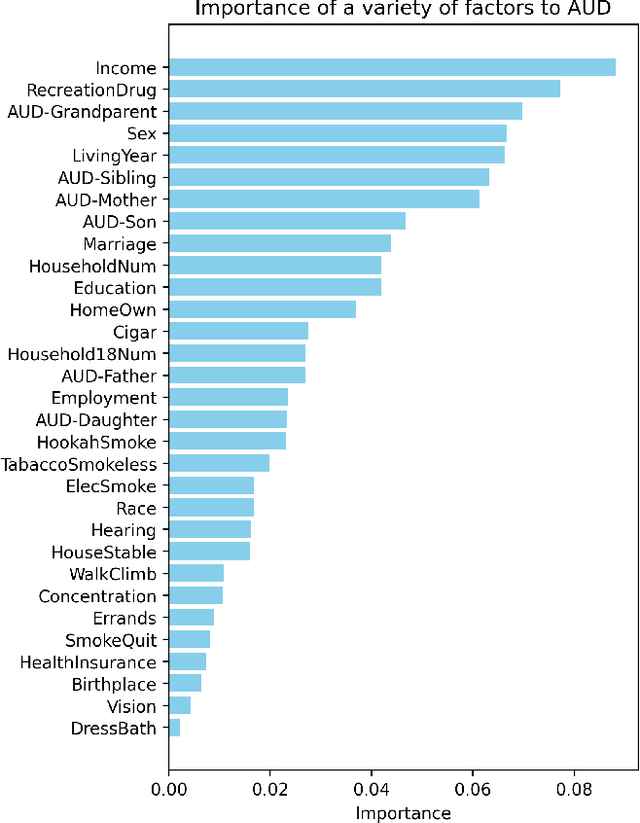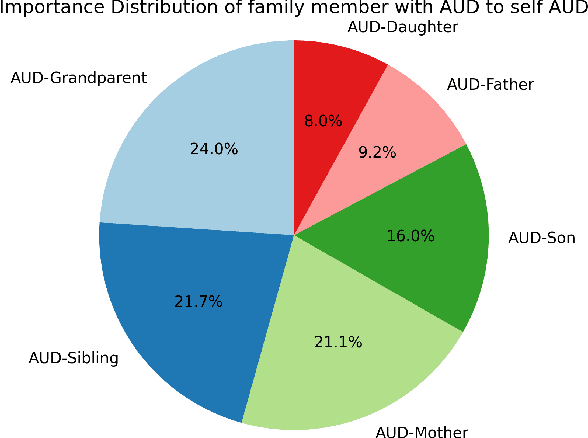Assessing Alcohol Use Disorder: Insights from Lifestyle, Background, and Family History with Machine Learning Techniques
Paper and Code
Oct 24, 2024



This study explored how lifestyle, personal background, and family history contribute to the risk of developing Alcohol Use Disorder (AUD). Survey data from the All of Us Program was utilized to extract information on AUD status, lifestyle, personal background, and family history for 6,016 participants. Key determinants of AUD were identified using decision trees including annual income, recreational drug use, length of residence, sex/gender, marital status, education level, and family history of AUD. Data visualization and Chi-Square Tests of Independence were then used to assess associations between identified factors and AUD. Afterwards, machine learning techniques including decision trees, random forests, and Naive Bayes were applied to predict an individual's likelihood of developing AUD. Random forests were found to achieve the highest accuracy (82%), compared to Decision Trees and Naive Bayes. Findings from this study can offer insights that help parents, healthcare professionals, and educators develop strategies to reduce AUD risk, enabling early intervention and targeted prevention efforts.
 Add to Chrome
Add to Chrome Add to Firefox
Add to Firefox Add to Edge
Add to Edge